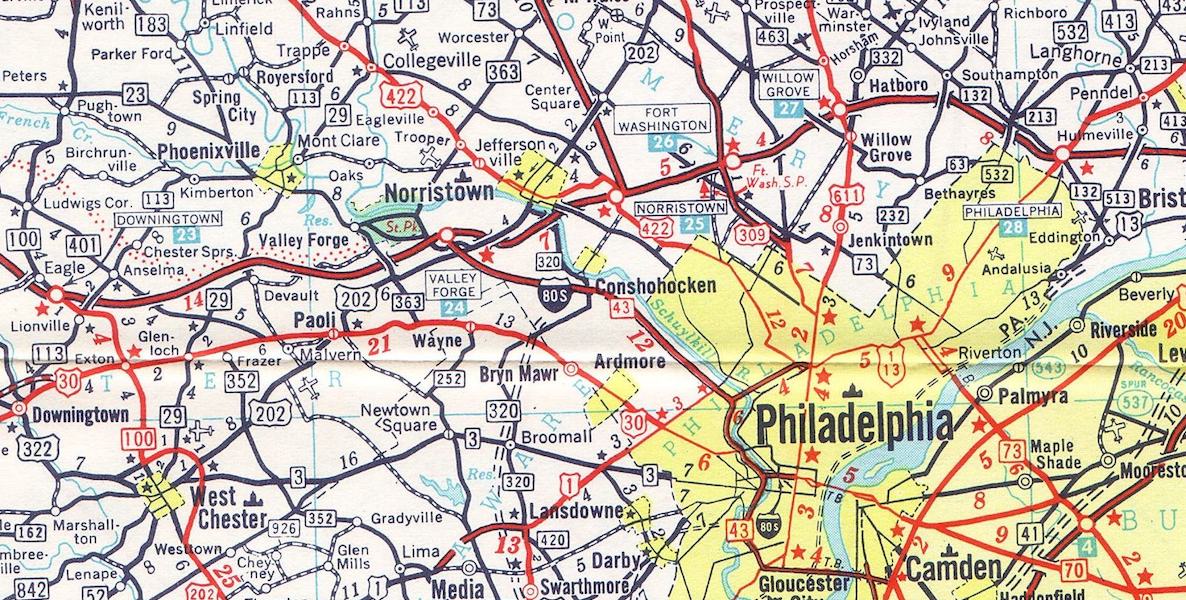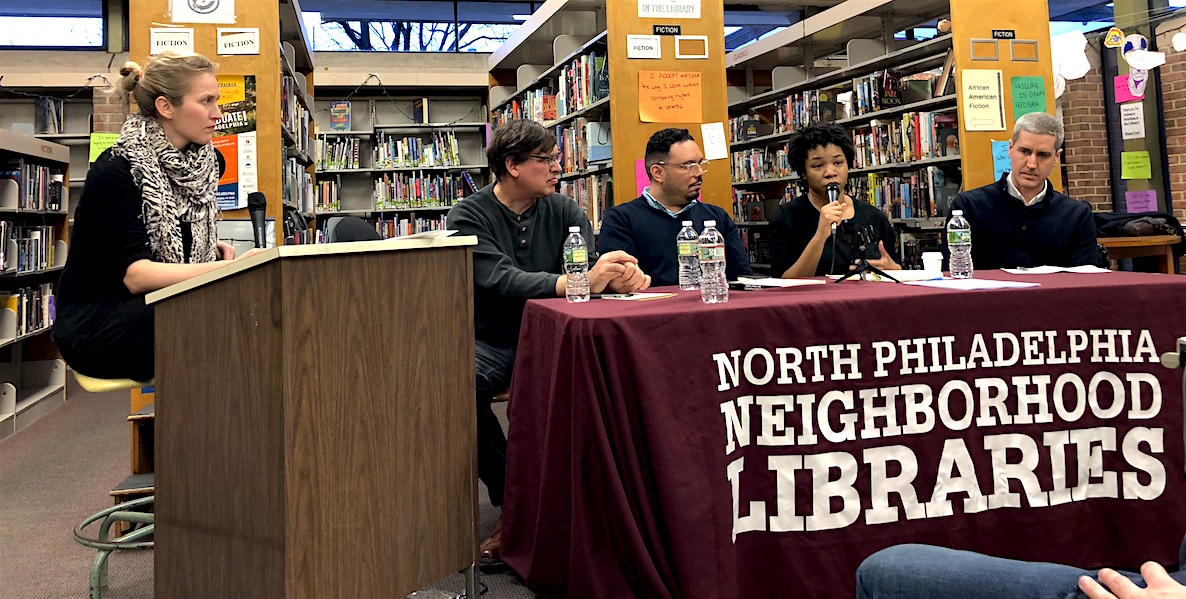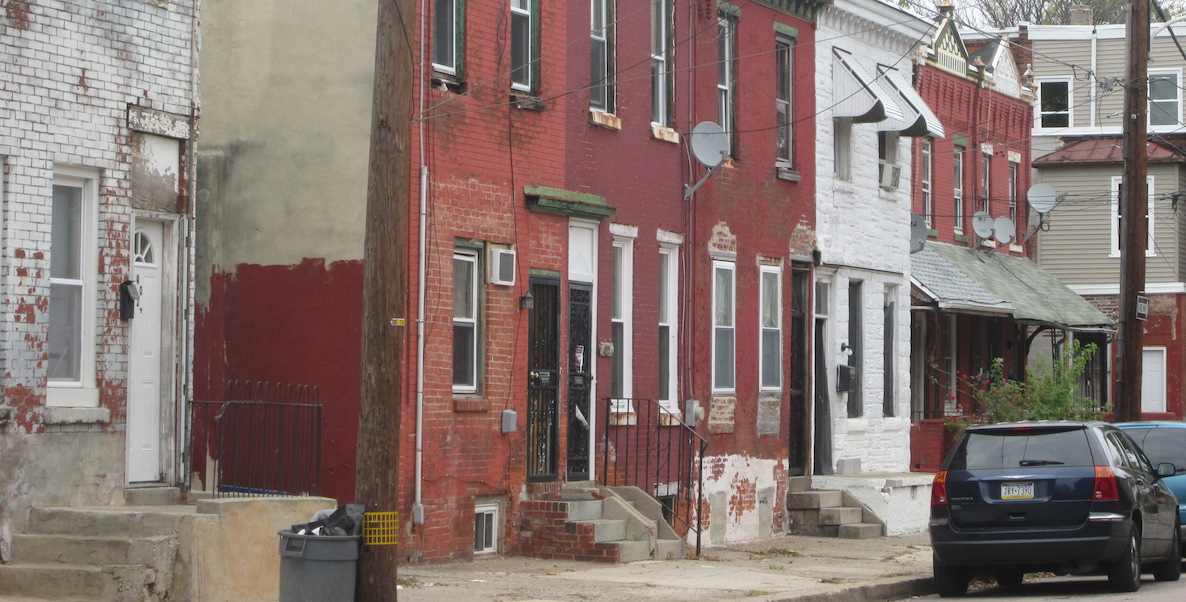Welcome to Taxadelphia, one of the nation’s highest-taxed and poorest cities, where the Mayor has once again proposed reaching into citizens’ pockets. This time, the proposal is a 6 percent property tax increase—the fifth such hike in the last decade—and an 8 percent increase in the real estate transfer tax. Last year, it was the regressive (and failing) soda tax. Then there’s the litany of new taxes before these, all proving our addiction to a policy best described as Ready, Aim, Tax: Remember the “temporary” sales tax that is still permanent to this day? How about the multiple parking taxes, as well as ones on cigarettes, liquor-by-the-drink and trash collection? And we haven’t even mentioned the wage tax, the incremental cuts to which Mayor Kenney is also proposing to do away with.
Be Part of the Solution
Become a Citizen member.All this while the city says that some $400 million in real estate taxes are delinquent, 55 percent of which would be designated for the school district—the same place Kenney says the proceeds of his latest tax hike will go. You don’t have to be a policy wonk to wonder: How about collecting the taxes we already levy before enacting new ones?

Prefer the audio version? Listen to this article on CitizenCast below.
Audio Player
That was the thinking behind Councilman Allan Domb’s proposed legislation introduced last November that actually has the support of Mayor Kenney. Domb’s bill would have followed New York City’s model and instituted a securitized lien sale of the city’s outstanding real estate tax debt. In New York, the first year of such a system brought in $1 billion. However, on the day Domb proposed his legislation, three City Council members—Council President Clarke, Councilwoman Maria Quinones Sanchez and Councilwoman Jannie Blackwell—introduced identical legislation, with one exception: Residential properties from each of their districts were exempted from the tax collection program. Ever since, both bills have languished in the recesses of Council’s Finance Committee, with no date on the horizon upon which they’d be taken up for consideration.
Forget for a moment the weirdness of Clarke’s and Sanchez’s distrust of the city, as if they’re passive spectators and not longtime public officials charged with overseeing that very government; it’s reminiscent of Donald Trump’s harping on intelligence community findings or Justice Department actions. At some point, dude, the government is you.
In effect, it seems like the Clarke, Sanchez and Blackwell bill was a way to torpedo the effort to collect back taxes while reserving for those three Council members the ability to say later that they had, indeed, proposed tax collection legislation. Recently, I spoke to Domb and Sanchez and received an email from Clarke’s spokesperson in an effort to figure out just what the hell is going on here. And what I found is that these politicians aren’t even having the same conversation. Domb, who earnestly embarked on a best practices problem-solving tour before he was even elected, thinks he’s solving a practical problem. Sanchez and Clarke think they’re making a courageous stand against gentrification.
Let’s walk through the facts. First, some background on Domb’s legislation. Many cities collect delinquent taxes by selling their tax liens to third parties, who then own that debt and go after the taxpayer to collect on it. That’s called a bulk lien sale, and that’s how Philadelphia has done it in the past, sending out notices of the impending sale and thereby incentivizing those who weren’t paying to pay.
Under then-Mayor Rudy Giuliani in the ‘90s, New York City introduced a different program, called a tax lien securitization system, when its collection hovered around 90 percent. It’s now at 99 percent. Here, where our collection rate is around 94 percent, one percentage point increase could be worth $13 million, 55 percent of which would be earmarked for the schools. If the city is right that there are $400 million in delinquencies, improved collection would mean that Mayor Kenney’s proposed tax increase either wouldn’t be necessary or could be for much less.
Tell City Council What You ThinkDo Something
A feasibility study conducted for the city by the National Tax Lien Association found that, using the securitization model, Philadelphia would collect roughly $90 million in its first year and approximately $30 million per year thereafter, over and above what’s already being collected today.
So what’s the problem with this method? For one, Clarke and Sanchez don’t trust the city’s data and fear that the program would lead to evictions and displacement. “Just 48 percent of the cited $400 million in outstanding payments is verifiable outstanding delinquency eligible for new collections measures,” Clarke wrote in an Inquirer letter to the editor. “…In just one hour of fact-checking the Revenue Department’s delinquency list, my office found numerous historical churches, a Head Start preschool playground, land owned by our four largest universities, and cemeteries that are exempt from property taxes and should never be seized for delinquency.”
These politicians aren’t even having the same conversation. Domb thinks he’s solving a practical problem. Sanchez and Clarke think they’re making a courageous stand against gentrification.
The message from Jane Roh, Clarke’s spokesperson, doubles down on the same point: “There is no objection here to efficient and rigorous tax collection, but mass lien sales when our own records are so badly flawed would be irresponsible, and would likely lead to mass displacement and gentrification on steroids in certain parts of the city,” she wrote.
Sanchez agrees, saying “the city has not been a good steward” of maintaining accurate tax records. But therein lies the rub. Domb’s legislation would have the city hiring an outside project manager—someone who reports to the city, with Council oversight—whose job it would be to scrub the data Clarke and Sanchez view as suspect. In other words, the answer to the problem Clarke and Sanchez have identified is hiding in plain sight in the legislation they’ve sought to torpedo.
“But, presumably, the outside project manager the city hires would fix the issue you’ve raised, right?” I ask Sanchez.
“Presumably,” she says. “Presumably. I don’t trust the city to do that.”
Forget for a moment the weirdness of Clarke’s and Sanchez’s distrust of the city, as if they’re passive spectators and not longtime public officials charged with overseeing that very government; it’s reminiscent of Donald Trump’s harping on intelligence community findings or Justice Department actions. At some point, dude, the government is you.
Sanchez makes the point that she represents the city’s poorest district and her obligation is to look out for her constituency—unlike an at-large member like Domb, who can afford, in her words, “a more global perspective.” Fair enough, but what’s so frustrating about this issue—like so many in our polarized public life—is that there’s no agreement on underlying facts that stare at us in plain sight. For example, Domb estimates that roughly 40 percent of delinquent taxpayers live outside the city, and that more than half are commercial investment properties. Sanchez wants to protect indigent city homeowners, but is unwittingly letting others skate who could otherwise afford to pay.
Sanchez cites the 1997 lien sale that left 1,347 properties in her district that, to this day, are vacant and blighted. But that process, under then-Mayor Rendell, was a bulk lien sale, which has proven to be problematic throughout the nation. The securitized lien process in Domb’s bill, on the other hand, specifically protects the citizens Sanchez is rightfully concerned about. For example, Sanchez laudably passed OOPA, short for owner-occupied payment agreement. Under this program, Philadelphia has the most forgiving repayment plan for homeowners in the nation, allowing those in arrears to stay in their homes while making monthly payments of $10 or $25. “But that only has 10 percent enrollment,” Sanchez notes. “We do a poor job of letting people know about it.”
Stories from Larry PlattRead More
Sanchez assures me that her opposition to Domb’s bill is not some power play, and has nothing to do with protecting councilmanic prerogative. “We really are intentional and thoughtful about how to go about development,” she says, and I take her at her word. But there doesn’t appear to be anything in Domb’s bill that would stand in the way of smart development or that would take away the homes of her constituents.
“I understand the concern about the 16,000 owner-occupied delinquent properties, which is why my bill pushes them to enroll in OOPA,” a mystified Domb says when I ask about the way in which Clarke, Sanchez and Blackwell (chairwoman, not coincidentally, of the Finance Committee, where Domb’s bill languishes) have cleverly kept his bill from becoming law while preserving for themselves the wide-eyed ability to proclaim that they have, indeed, proposed tax collection legislation. “But there are 51,000 delinquent properties that are commercial, industrial or investor-owned. I would hope my colleagues will consider collecting delinquent taxes from those who choose not to pay.”
The message that tax law should send in the birthplace of American Democracy is that we’re all in this together; that means coming up with a way to tax property that protects the least of these but that also requires something of every citizen.
Ah, what we talk about when we talk about taxes. It seems our politicians are not even in the same conversation. Domb, with the cool calculus of a businessman, is talking about a solution to a revenue problem. Sanchez is talking about a raft of social problems, and not seeing how a windfall of delinquent tax revenue could help address them.
Moreover, how’s this for delicious irony: Domb, nicknamed the Condo King, is making an essentially progressive taxation argument, positing that it’s only fair to the 94 percent of Philadelphia property owners who pay their taxes that those who can afford to do the same ought to. Clarke and Sanchez, by standing in the way of bettering collection, are actually undermining progressive action, given that the city’s bond rating is determined by three factors: Our pension liability, our rainy day reserve, and—you guessed it—our tax delinquencies. Reducing said bond rating makes borrowing cheaper, which can ultimately pave the way for much-needed progressive investments in education and infrastructure.
What is undeniable is that by dropping a bill identical to Domb’s that exempts nearly half of the city’s residential homeowners from the same tax law as everybody else is not only cynical, but sends a terrible message. The message that tax law should send in the birthplace of American Democracy is that we’re all in this together; that means coming up with a way to tax property that protects the least of these but that also requires something of every citizen. Domb’s bill sought to do that, and maybe it needed tweaking. But no one’s negotiating with him in good faith. That’s too bad, because the more we tax the average working Philadelphian, the more our tax base will shrink, and the more critical needs will go unmet.
Photo: Design for Health via Flickr







